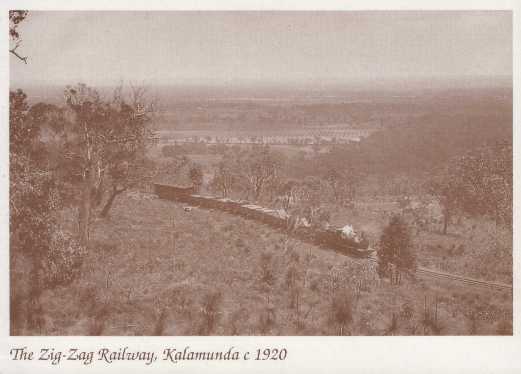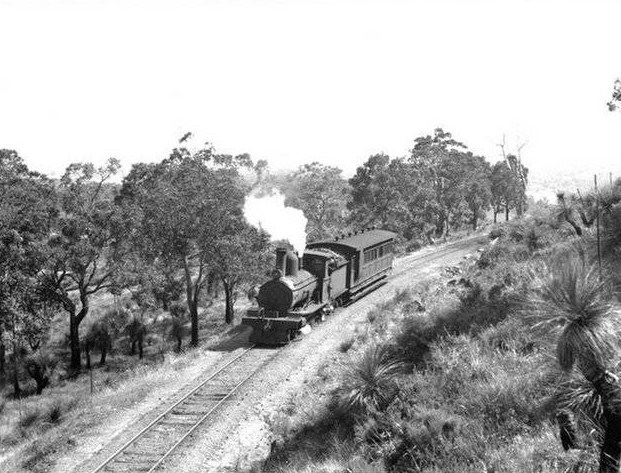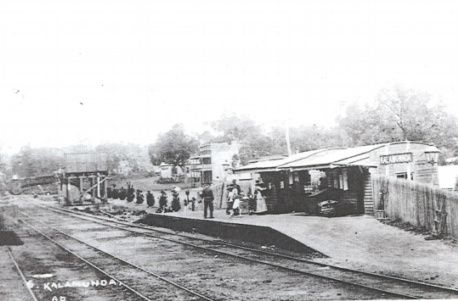GOOSEBERRY HILL
Gooseberry Hill is located on the escarpment of the Darling Range and is bordered by the suburbs of Kalamunda, Maida Vale, Piesse Brook, Helena Valley (not within the Shire of Kalamunda) and Kalamunda and Gooseberry Hill National Parks.
Primarily residential land and parkland, Gooseberry Hill has many natural attractions including Gooseberry Hill National Park (including the historical Stratham’s Quarry), Darling Range Regional Park (including the historical Zig Zag Railway line), Huntley Nature Reserve and the Quenda Creek Nature Reserve. There are two schools within Gooseberry Hill – Mary’s Mount Primary School and Gooseberry Hill Primary School. The total population for the suburb of Gooseberry Hill is approximately 3 200.
Best kept secrets…
Visit Patsy Durack’s Rose Garden in the grounds of the old archbishop’s house - 33 Parke Road, Gooseberry Hill, WA, Phone (08) 9293 2719.
Visit Leeann at Herb Cottage and experience the healing power of natural therapies – an amazing individual guaranteed to brighten your day (submitted by Kathy Forster).
Attractions
Gooseberry Hill National Park and the Zig Zag Scenic Route
Gooseberry Hill National Park is 33 hectares in size with magnificent views of the Swan Coastal Plain. The Zig Zag – a scenic narrow one way bitumen road, leads downhill through the park and provides amazing photography and bird watching opportunities. It is also a popular track for cyclists. Every year in early October, the Shire of Kalamunda holds a Zig Zag Walk event, where the road is open only to pedestrians allowing people the opportunity to admire the views and see the area’s wildflowers. The Zig Zag is also used as a stage in the Targa West Rally. You can access the top of Stratham’s Quarry from the Zig Zag.
Stratham’s Quarry
Statham’s Quarry can be found in Gooseberry Hill National Park. Did you know that it has made quite a contribution to WA? Stones from the quarry were used as street paving in Perth during the early 1900?s and for City Beach. The quarry closed following a bushfire in the 1950s but today it can be used as a great picnic spot. The Quarry has also been the scene of weddings, movies, abseiling accidents and many a brown pant moment! If you’re vertically inclined, the Quarry is a great spot for abseiling and rock climbing! More information can be found at Rockclimbing.com , CAWA , Perth Tourism and Adventure Out.
History
The origins of white settlement in the Shire of Kalamunda can be traced back to the Gooseberry Hill area when Benjamin Robins of Waterhall Estate, East Guildford, purchased 40 acres of land near what was to become the Gooseberry Hill Station on the old Zig Zag Railway. This block remained an outpost for Benjamin Robins and he did not settle on the land. Instead, he used the country to run sheep and hired an old man who lived in a hut to shepherd the sheep.
The native name for Gooseberry Hill is actually “Kalbomoonup”, which may have had origins in a native legend respecting the manner in which aborigines got fire in the cold time. The name Gooseberry Hill is attributed to Mrs Mead (wife of prominent pioneer William Henry Mead), who chose the name due to the fact that Cape Gooseberries thrived in the area. Another theory is that the suburb was named after a hill in Yorkshire by the early settlers. The gooseberries were eventually eaten out by sheep and the origin of the name has never been confirmed.
William Henry Mead was the first private settler in the area. At the age of 24, Mr Mead and his wife took up 40 acres near the foot of Gooseberry Hill Road in 1873. His block was known as ‘Greenvale’. A prominent pioneer, Mr Mead was from a farming family who were among the pioneers of Northam. He leased a further 2000 acres in addition to his 40 acre block on which he ran sheep with the aid of a shepherd. In the early 1890’s, John Farrant settled on 500 acres just below the Zig Zag Railway line. Originally from South Australia, John Farrant was a land agent in Perth and the first businessman in the district to commute regularly by train to the city.
Mr Mead and his neighbour Mr Farrant were both good friends and co founders (along with some other pioneers) of the Darling Range Vine and Fruitgrowers’ Association in 1895 and the subsequent Darling Range Roads Board which were, essentially, the first attempt by the settlers to form some sort of organisation for the advancement of the community. Mr Mead was the first Chairman of the Darling Range Roads Board and was instrumental in the area’s early development.
E.W. Haynes, an engineer (whom Haynes St in Kalamunda is named after) and Septimus Burt, who was Attorney General in the first Ministry of John Forrest, both lived in Perth but bought land in Gooseberry Hill well before the railway line went through. They leased this land to Chinese market gardeners for food production and their land was known as Gooseberry Hill Groves.
The Zig Zag Railway line is an important part of the history of Gooseberry Hill. Completed in 1891 by the Canning Jarrah Timber Company to supply railway sleepers to Perth’s growing railway system, the line was, for its day, a prodigious undertaking. From Midland, the line climbed 320 feet in a little over five miles to the foot of the escarpment, where a spur line left to serve Stratham’s Quarry. The ascent of nearly 1000ft to the summit from this point was to become famous as the Zig Zag Railway. The line was so steep (1 in 30 grade), that the engine would alternate between pushing and pulling the load. The remaining eleven miles to Canning Mills was relatively easy going.
Statham’s Quarry can be found in Gooseberry Hill National Park and is also a significant part of the history of Gooseberry Hill. The Quarry was established and operated by Thomas Statham and William Burton in 1894 up until Statham’s death in 1920, after which the Perth City Council took over operations. A spur line from the Zig Zag ran into the Quarry from where much of the stone needed for street paving in Perth around the turn of the century was provided. The rocks for the groyne at City Beach also came from the quarry. Stratham’s Quarry was finally put out of operation by a bushfire in 1957.

Zig Zag Railway Line

Zig Zag 1937

Kalamunda Station
